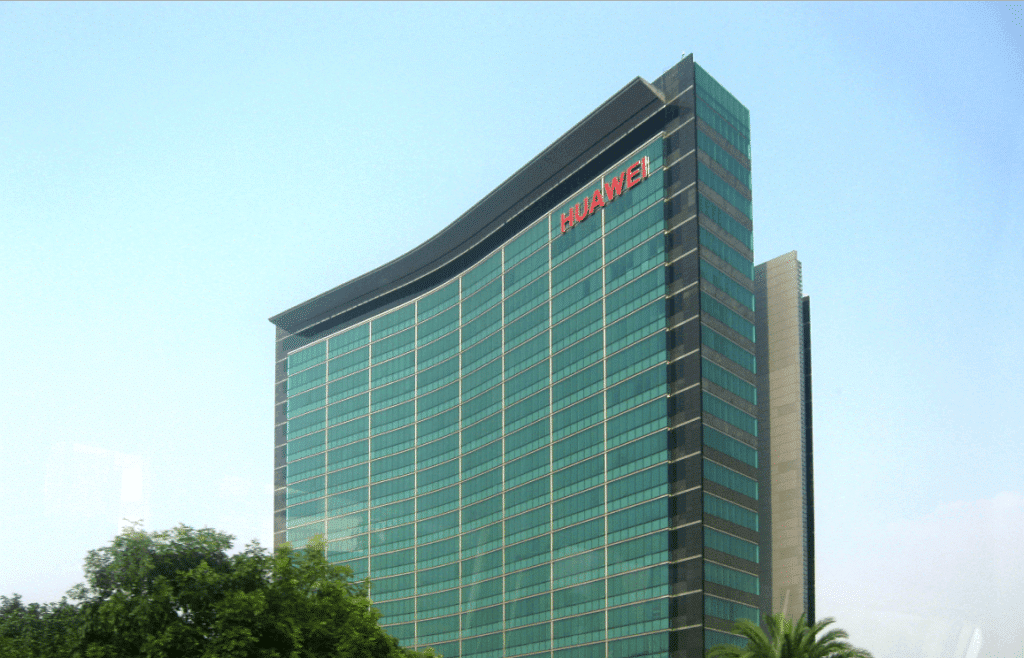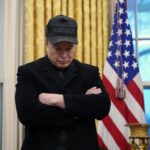The 10-minute interview: Joy Dantong Ma on why Trump is targeting Huawei
By Matt Field | May 17, 2019
 The Trump administration put Chinese firm Huawei on a list that could make it difficult to do business in the United States. Credit: Brücke-Osteuropa via Wikimedia Commons.
The Trump administration put Chinese firm Huawei on a list that could make it difficult to do business in the United States. Credit: Brücke-Osteuropa via Wikimedia Commons.
By Wednesday, the United States and China had already announced staggering new tariffs on a combined $260 billion worth of trade—a figure reflective of a pretty bad week for bilateral relations. But then the White House delivered a one-two punch so stunning The Washington Post likened the second act to a divorce. First came an executive order that vividly paints a picture of foreign adversaries sabotaging US communications networks and compromising critical infrastructure. It directs the commerce secretary to draft a ban on telecommunications technology that poses a risk to US national security. At around the same time, in case anyone was wondering at whom the order was aimed (it doesn’t list countries, companies, or specific technologies), the Commerce Department announced it will include the Chinese telecommunications company Huawei, the largest equipment maker in the industry, on its so-called entity list, curtailing the firm’s critical ability to buy components from the United States.
The US government has been skeptical of Huawei since at least 2012, when the House Intelligence Committee issued a report suggesting the company’s technology could be used by the Chinese government to spy and disrupt infrastructure. In 2018, President Donald Trump signed a bill preventing the federal government from using Huawei equipment, although some rural telecommunications carriers do. Google, with its Android operating system, is a major supplier to Huawei, as are other big US companies. Lately the Trump administration has been trying to convince allied countries to bar the company from participating in the next-generation 5G communications networks they are building.
So the administration says it has its sights on Huawei because its equipment poses a national security threat. Joy Dantong Ma, a China expert at the Paulson Institute, a think tank focused on the US-China relationship, told the Bulletin there may be other reasons for the moves against Huawei.
(Editor’s note: This interview has been condensed and edited for clarity.)

Matt Field: The executive order Trump signed the other day doesn’t mention Huawei or 5G. Why do people view it as targeting Huawei and 5G?
Joy Dantong Ma: When I saw it was telecommunications, it was talking about supply chains, it was talking about adversary countries, the natural intuition would be this is about 5G and Huawei. This was further confirmed minutes later by the Commerce Department having the announcement adding Huawei to the so-called entities list, which means that for American companies that do business with Huawei, from now on they would have to acquire export licenses before they sell their technologies for Huawei to use.
MF: You talked about Huawei becoming successful in recent years. But how do you take it that the controversy surrounding Huawei is being discussed in national security terms and not in terms of competition among the company and its competitors?
JDM: I actually think these two issues, the line between these two issues, in light of recent developments, has become increasingly blurry. The reason I say that is because the definition of national security has been changing. Back then we think the definition of national security is very clean-cut–the back door issues, those are national security. But recently, especially if you look at technology transfer through international-acquisitions-governing-body regulatory changes, the definition of national security, of national interest, has been expanded to competitive technology.
I want to point you to this new regulatory change called FIRRMA (Foreign Investment Risk Review Modernization Act). It’s the modernization act on the cross-border-investment governing body, CFIUS (Committee on Foreign Investment in the United States). In the past, CFIUS as the governing body of international inbound investments, they looked closely at deals that could pose national security threats, meaning the stuff you are investing into is too close to a military base or the company you are trying to acquire is a defense contractor.
But recent developments, especially the modernization act, has expanded the definition, the scope of scrutiny, to competitive technology, including 5G, including artificial intelligence. And that is a very dramatic change in the scope of the policy.
When we think about the scrutiny that a lot of companies are facing, there certainly are national security concerns, but also the definition of national security, the priority list of the US, has also changed and the scope has also expanded.
MF: Last summer, the administration reversed a Commerce Department decision that would have crippled the Chinese tech giant ZTE, with Trump saying too many jobs would be lost in China. Now Trump is taking a much tougher line against Huawei. What’s changed?
JDM: I think what has changed a lot is the external environment, namely the ongoing US-China trade negotiations. There was a lot of optimism in the possibility of reaching a deal, and both sides were very much willing to show friendly gestures. That was further demonstrated in Argentina back in November last year. But we had last Sunday a further escalation of the tariff contest, where the United States raised the tariffs from 10 percent to 25 percent on $200 billion worth of Chinese imports. The Chinese, hours later, vowed to retaliate, and yes they did. They raised the tariffs on $60 billion worth of American exports to China, rates of as high as 25 percent from previously 10 percent to 5 percent. You see a very hostile, very charged situation today. Huawei, in the greater context of the US-China trade negotiation, will be another chip on the board when both sides are playing the game of chicken and seeing who will budge first.
MF: If Trump gets a trade deal with China, will the US government concern over Huawei evaporate?
JDM: I think there’s a lot of changes that could be made as good [will] gestures. But let’s not forget the fact that strategic competition between US and China is a reality now. That is the context we have these US-China trade negotiations, that very much stalled on the front of technology transfer, intellectual property. Even though in the immediate term if the two sides could reach a deal the fact that the US and China are facing technology competition in fields such as 5G and artificial intelligence, the fact won’t be altered.
Together, we make the world safer.
The Bulletin elevates expert voices above the noise. But as an independent nonprofit organization, our operations depend on the support of readers like you. Help us continue to deliver quality journalism that holds leaders accountable. Your support of our work at any level is important. In return, we promise our coverage will be understandable, influential, vigilant, solution-oriented, and fair-minded. Together we can make a difference.
Keywords: Huawei, Trump administration, entities list, executive order, national security, tariffs
Topics: Analysis, Interviews















